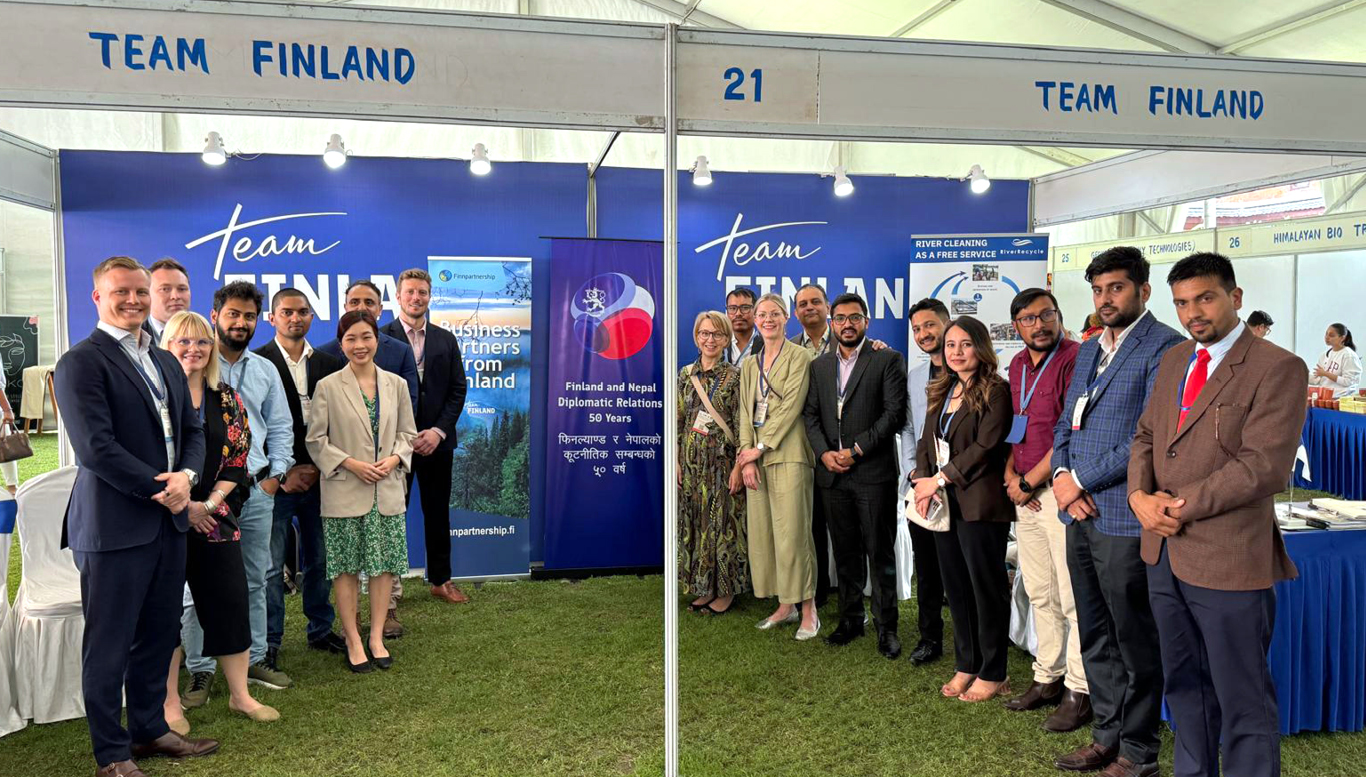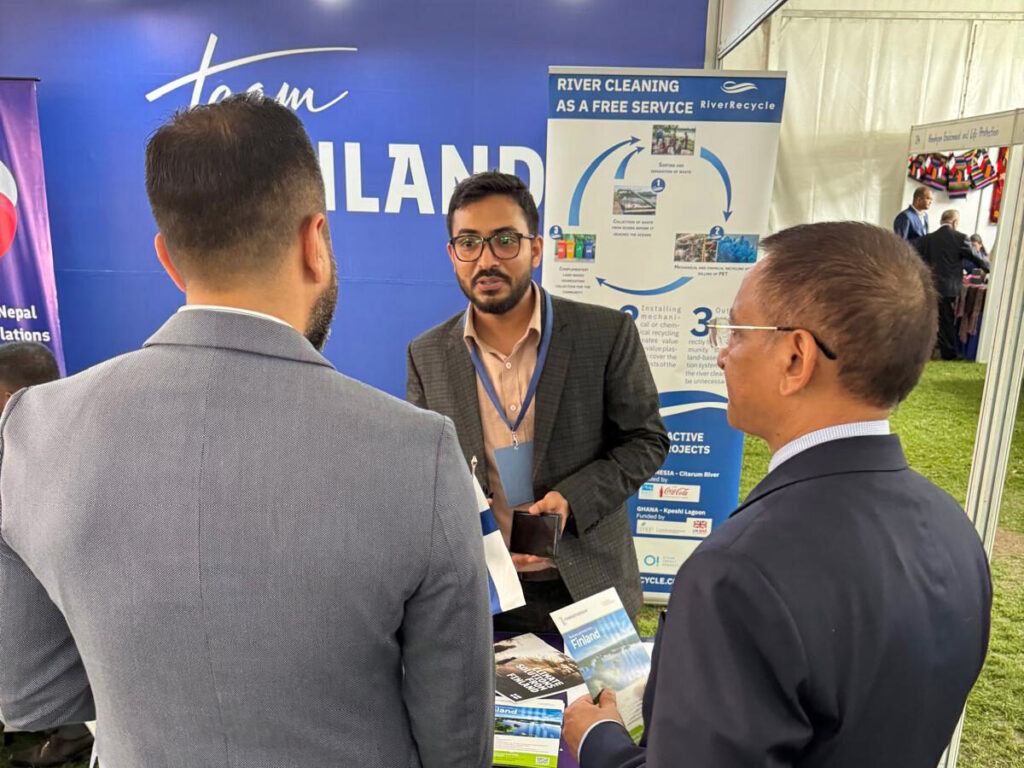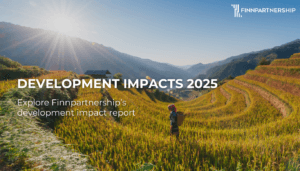Finnish delegation gained notable visibility at the EU-Nepal Business Forum

Finnpartnership organised a Team Finland visit to Nepal and the second EU-Nepal Business Forum in May. During the week-long visit, businesses were given networking opportunities with local business partners, companies, and politicians, and at the end of the week they participated in the EU Forum. Embassy of Finland and nine Finnish companies participated in the event. The Finnish delegation was the largest delegation from the EU member states to attend the Forum. Other local partner companies of Finnish companies, that have also received financial grants from Finnpartnership in previous years, were also represented. Thus overall Finland was well represented at the event.
The week was very useful for Finnish companies, many of which found new partnerships. Finland and Finnish solutions are highly valued in Nepal, partly due to the long history of development cooperation, but also because of the Finnish level of expertise, education, and quality.
The main sectors covered by the EU-Nepal Business Forum were energy, IT and connectivity, youth and women entrepreneurship, agriculture and forestry, and tourism. Finnish companies were well represented in the sectors highlighted at the Forum and showcased solutions to the challenges in Nepal that are driving the local young population to seek opportunities elsewhere. It is also noteworthy that most of the representatives of Finnish companies who attended the Team Finland visit were Nepalese who had previously come to Finland to study and who, after graduation, have either become entrepreneurs or have gone to work for Finnish companies. They are now working to create joint partnerships, solutions to local challenges, and employment opportunities in Nepal. In other words, projects that benefit both countries.

Diverse market suffers from emigration
Nepal has a population of around 30 million people. Geographically, the country can be divided into three parts: the Himalayan Mountains, the central region, where the Kathmandu Valley is located, and the Terai Plain, which has a tropical climate. Transport connections are underdeveloped and moving from one place to another is difficult. The population has several different ethnic groups and there are 123 local languages. The official language is Nepali, which is spoken by the majority of the population, but English is also widely spoken. Most of the people is Hindu, with a minority practising Buddhism, Islam, Kiratism and other religions. Casteism is also part of Nepali culture. The country transitioned from a monarchy to a democratic republic in 2008.
Development Assistance Committee (DAC) of the Organisation for Economic Co-operation and Development (OECD) lists Nepal in least developed countries. Finland and Nepal have long diplomatic relations, mainly based on development cooperation. The country remains highly dependent on remittances from migrant workers (around 25% of GDP) and agriculture.
Up to 775 000 Nepalese people migrated abroad for work or study in 2022, a figure that has been increasing for several years. In the same year, almost 500 Nepalis migrated to Finland. Lack of employment and earnings are the main reasons for youth migration, but decreasing living standards, political uncertainty and growing hopelessness about the future also contribute to emigration.
Despite the challenging circumstances, Nepal offers business opportunities in many sectors. Finnpartnership offers Business Partnership Support to help businesses get started and to lower the risk threshold for starting a business in a new market. For projects in Nepal, the financial grant covers 75% of the approved budget for SMEs and 50% for large companies.
Share on social media


